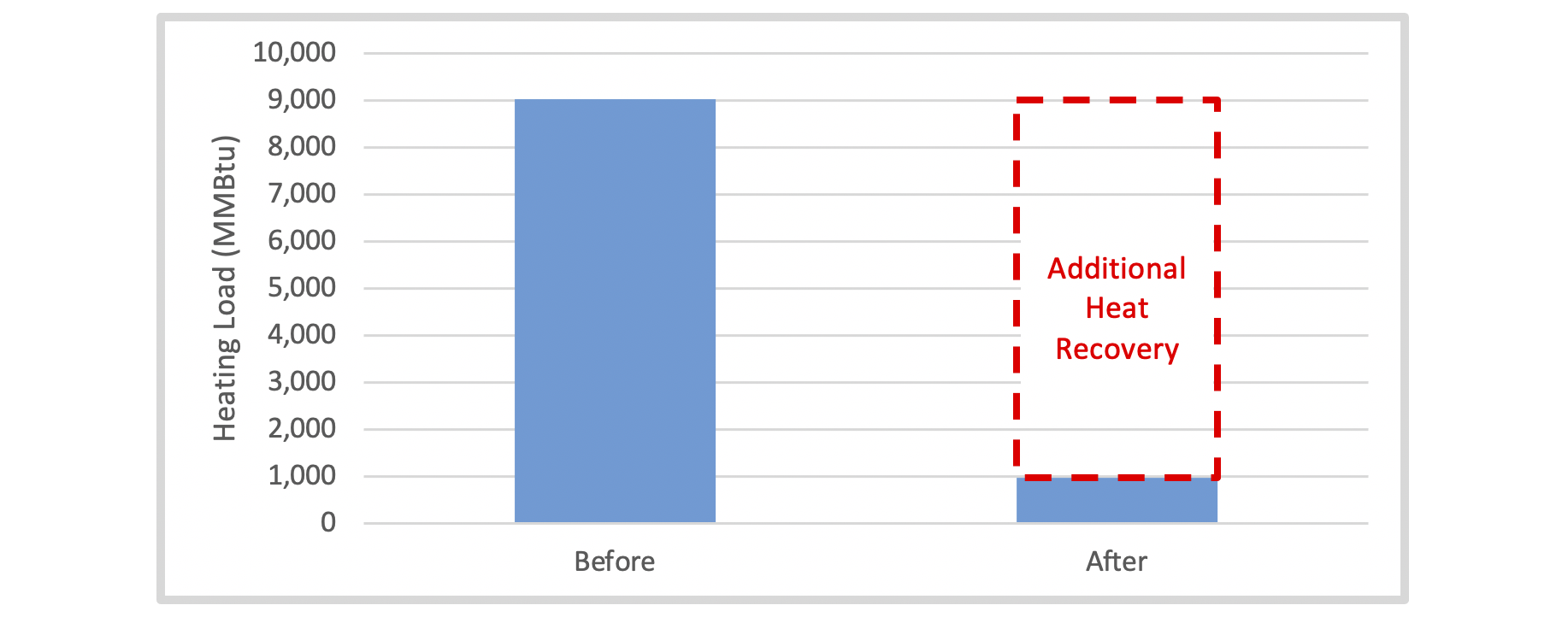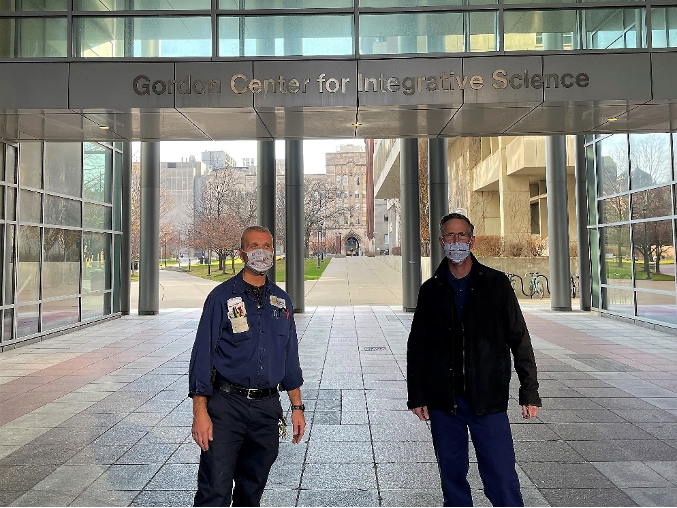The Ellen and Melvin Gordon Center for Integrative Science (GCIS), which houses laboratory and office space for both the Physical Sciences Division and the Biological Sciences Division, is among the University’s largest and most complex buildings. GCIS is also the largest energy consumer on campus accounting for over 15% of campus energy usage. As part of our UChicago Preventive Maintenance and Commissioning (PM+Cx) program to identify and evaluate sustainability improvements, GCIS operations and systems were thoroughly reviewed. The PM+Cx program provides detailed energy audits and retro-commissioning opportunities to reduce energy and water use in the top 38 buildings that account for 80% of total campus energy use.

GCIS presents a unique challenge, as critical and highly sensitive research environments require tight temperature control and large amounts of ventilation air. While strengthening those operating environment imperatives, the project team was able to identify and implement twelve energy conservation projects that included optimization of the heat recovery system, intelligent control of office airflow in accordance with industry-standard safety guidelines, and optimization of the chilled water plant. In addition, deep equipment maintenance and central building automation system control programming improved system operation and occupant comfort.
Given its size and complexity, GCIS has a vast repository of building operational data available for analysis. In order to make the most out of this data, a monitoring-based commissioning (MBCx) system was installed as part of the project. Using advanced algorithms to analyze building data, this system is able to identify more opportunities than would be possible otherwise. The MBCx system was used to compile individual fume hood usage data, identify inefficiently functioning equipment, and provide system-level breakdowns of energy use.
These efforts resulted in a verified energy reduction of 11% based on detailed post-implementation measurement and verification. The energy saved in this project reduces annual greenhouse gas emissions by 786 metric tons eCO2, which is equivalent to the annual carbon sequestration of 1,000 acres of forest.

The outdoor air heat recovery system was modified and re-programmed, resulting in significant energy savings.
The graph above compares system heating load for 2020 against the same period in 2019.
This project was a collaborative effort across several UChicago departments, including Energy Services, North Campus (NC) Engineers, Building Automation Shop (BAS), the Office of Research Safety (ORS), Physical Sciences Division (PSD), and Information Technology. A special thanks to Jim Culhane and Jim Ogorzalek (FS North Campus Operations) and John Phillips (PSD) for sharing their extensive knowledge of the building, Bob Slivon (FS Building Automation) for controls and programming support, and Joe Kanabrocki (ORS) for ensuring all system changes maintained or improved upon UChicago’s high safety standards.

The support of Jim Ogorzalek (left) and Jim Culhane (right) were critical to the project success
The University of Chicago is a proud United States Environmental Protection Agency ENERGY STAR® Partner, collaborating with peer institutions to reduce higher education campus energy usage. The goal of this energy efficiency program is to: (1) reduce the impact on the environment as about 70 percent of University greenhouse gas emissions are from energy usage in campus buildings; (2) redirect funds currently going to utility providers back into the maintenance of our campus buildings; and (3) reduce the risk of disruption to our educational and research mission by locating and correcting issues before systems and components in our buildings fail. More than 300 energy efficiency measures have been completed in the University of Chicago campus buildings since 2009, and buildings will continue to be a primary target of our efforts to reduce greenhouse gas emissions.